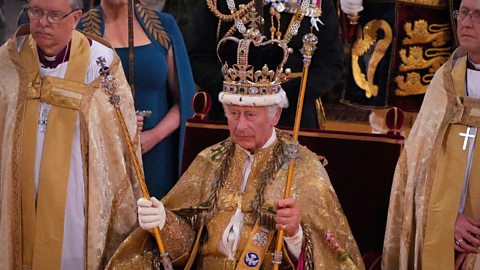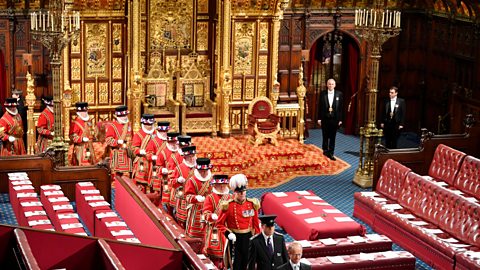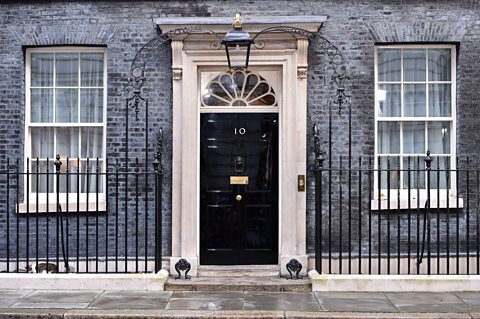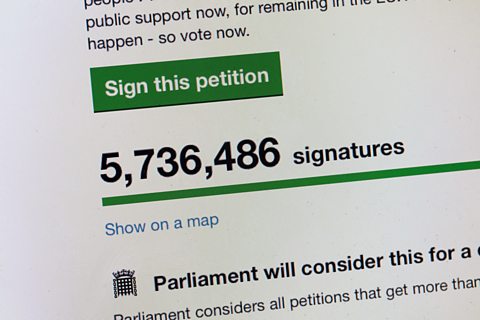What are the features of democratic political society in the UK?
Quick version
For society to be democratic, everyone is entitled to a basic level of fairness, equality and freedom.
In the UK, a combination of rights, freedoms and laws help maintain democracy.
- voting - everyone aged 18 and over, who is eligible, can vote in UK Parliament elections
- political participation - all British citizens can stand as a political representative
- freedom of speech - everyone is free to express their opinion
- freedom of association and assembly - people can come together to work towards common interests
- freedom of the press - media can hold politicians to account
- independent judiciary - the justice system is protected from political influence
Video - The UK Parliament
Watch this video explaining what the UK Parliament is and what MPs and Lords do.
The UK Parliament
Parliament is the United Kingdom’s supreme body that has the authority to makethe country's laws.
It is made up of three parts -the House of Commons, the House of Lords and theCrown.
This is the Monarch.
The monarch is the head of State and approves all laws.
They have limited powers and are politically impartial.
This means they cannot allow their personal political views to colour any advicethey give or their actions.
The House of Commons and the House of Lords make up the two chambers ofthe UK Parliament.
The House of Commons is the elected chamber of Parliament.
This means that the Commons members known as the Members of Parliament orMPs, are elected by UK citizens to represent their views and make decisions ontheir behalf.
This makes the UK a representative democracy.
There are 650 MPs in the House of Commons.
One MP for each geographical area they represent - their constituency.
Most MPs represent a political party, though some are independent of a party.
The political party that wins the most constituencies is given the opportunity toform the new government and its leader becomes Prime Minister.
MPs work between their constituency and the UK Parliament.
MPs also need to juggle the interests of their constituency, the countryand those of their national party.
One way they do this is by debating issues on the floor of the House ofCommons.
MPs can propose, debate and suggest changes to draft laws or bills.Members of the House of Lords can do this too.
The House of Lords is independent from the House of Commons, but shares thetask of making and shaping laws and checking and challenging the work of theGovernment.
Lords are not elected and not all of them have a political background.
They represent a wide range of professions and are often chosen for theirexperience or specialist knowledge.
The House of Lords also includes Lords spiritual, Bishops from the Church ofEngland, as well as a few hereditary peers who inherit their seat in the Lords froma parent.
There's often a lot of back and forth between the two houses as they check andmake amendments to bills.
But both houses must agree to the final text of the bill before it can be signed offby the Monarch, Royal Assent, and become an Act of Parliament, Law.
So how does Parliament hold the government to account for the public?
Each Wednesday, the Prime Minister takes questions in the House of Commons.
This gives MPs a chance to question the government directly, including the PrimeMinister, about government decisions and express their constituents’ concerns.
Another opportunity for Parliament to check the work of the government isthrough investigative select committees.
This is where selected MPs and Lords work together across parties to look indetail at proposed legislation and government departments.
They also have the power to question government ministers, including the PM,on their decisions and make recommendations if they feel the government arenot working on behalf of the people.
In all these ways, Parliament is set up with the aim of ensuring the country isgoverned effectively on behalf of everyone in the UK.
Learn in more depth
What is a constitutional monarchy?
The UK is a constitutional monarchy. The monarch is the head of state, but this role is largely symbolic. This means that the monarch has no real power.
The UK Government runs the country on behalf of the monarch and the UK Parliament has responsibility for making laws.
It is the people who have the power to choose who represents them in the UK Parliament and who forms the UK Government.
- Image source, PA Images / Alamy

Image caption, King Charles III, the UK's current monarch.
- Image source, PA Images / Alamy Stock Photo

Image caption, Every year the monarch goes to the House of Lords to open a new session of Parliament.
1 of 2
What is a constitution?
A constitution sets out rules and regulations of how a country is run.
A constitution helps democracy by setting out laws and principles that political leaders can be held to.
The UK does not have a written constitution like the USA. Instead, it can be found in many different places including:
- laws
- decisions taking by judges
- tradition
What is representative democracy?
The United Kingdom (UK) is a democracy and are too many people to all discuss all the decisions about how the country is run. Therefore representatives are elected to make decisions.
Representatives include Members of Parliament (MPs), Members of the Scottish Parliament (MSPs) and local councillors.
These representatives are usually members of a political party. As of the 2024 UK General Election, MPs in the UK Parliament represent the following political parties:
- Labour
- Conservative
- Liberal Democrat
- Scottish National Party
- Sinn Fein
- Reform UK
- Democratic Unionist Party
- Green
- Plaid Cymru
- Social Democratic and Labour Party
- Alliance Party
- Ulster Unionist Party-Traditional Unionist Voice
There are also six independent MPs who do not represent any political party.
How does voting contribute to democracy?
Voting is a key part of democracy.
Elections are held by secret ballot. This means individuals’ votes are anonymous which helps prevent people from being pressured to vote in a particular way.
To vote in a UK Parliament election a person must:
- be aged 18 or over
- be a British citizen, a qualifying Commonwealth citizen or a citizen of the Republic of Ireland
- not be serving a prison sentence for a conviction
- not be a member of the House of Lords
How does political participation contribute to democracy?
All adult British citizens can stand as an MSP, MP or local councillor. This means that anyone can become involved in political decision making.
This does not include some groups of people:
- serving police officers
- serving army officers
- civil servants
- judges
These groups are excluded to prevent these jobs being politicised.
How does freedom of speech contribute to democracy?
Everyone is entitled to their own opinions and to express their views.
They can do this in a number of ways:
- in person
- in print
- in the media
- online
They must do this within certain laws that prevent threats, hate, incitementThe act of encouraging someone to act violently or commit another crime or making dishonest statements to damage someone's reputation.
People can also start or sign petitions about issues they care about.
How does freedom of association and assembly contribute to democracy?
People are free to participate in organisations including:
- political parties
- pressure groups
- trade unions
These are all ways in which individuals can come together to work in their common interests.
Individuals have the right to take part in protests, marches and demonstrations provided they are peaceful.
How does freedom of the press contribute to democracy?
Newspapers, television, radio and online media are able to report freely on social and political issues.
They are able to criticise and hold government, politicians and other bodies to account for their policies, successes and failures.
While television and radio news must be impartialNot biased. Treating everyone fairly and equally., other media can take sides and express opinions, as long as what they say is accurate.
How does independence of the judiciary contribute to democracy?
The justice system in the UK is kept separate from government.
Judges’ decisions must be impartial and independent of political bias.
Ministers are barred from trying to influence judges’ decisions.
Judges cannot be sued or prosecuted for their work. This is designed to further protect them from influence or pressure.
Quiz
Recap what you have learned
The UK is a constitutional monarchy
- the monarch holds symbolic power only
- the constitution creates laws and principles for how the country is run
The UK is a representative democracy
- voting allows people to choose political representatives
- all British citizens can stand as a political representative
- freedom of speech protects our ability to express our own opinions
- freedom of association and assembly allows people to come together and work towards common interests
- freedom of the press means the media can hold politicians to account
- independent judiciary protects the justice system from political influence
More on Democracy in the UK
Find out more by working through a topic
- count3 of 14

- count4 of 14

- count5 of 14
